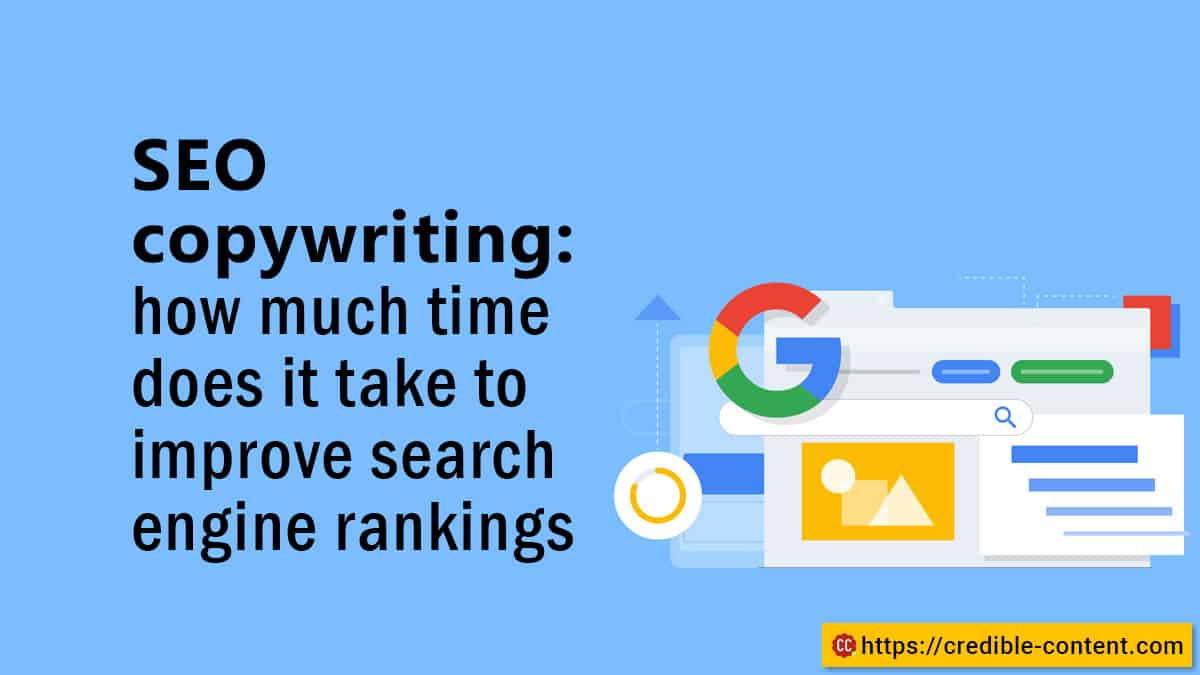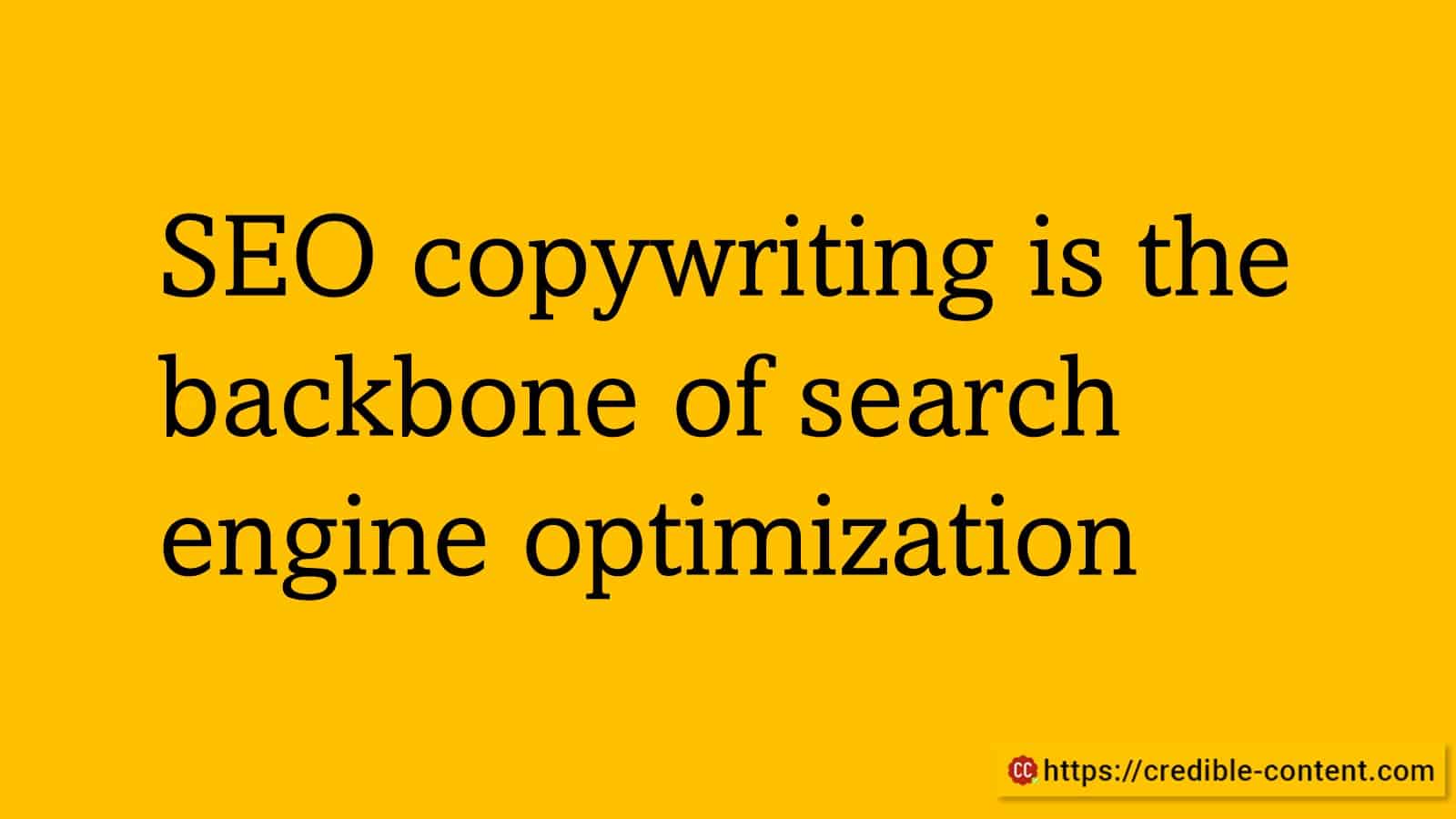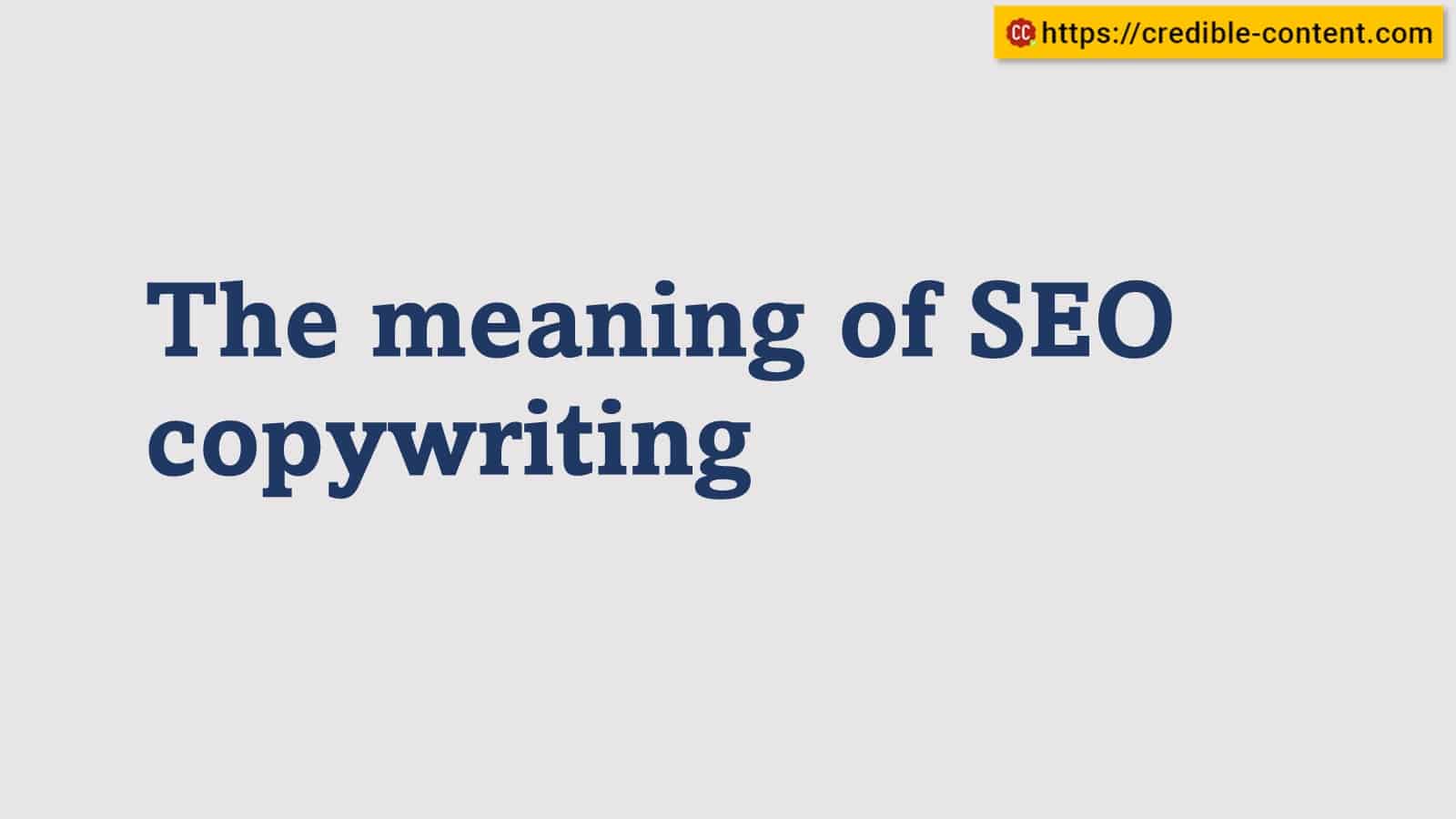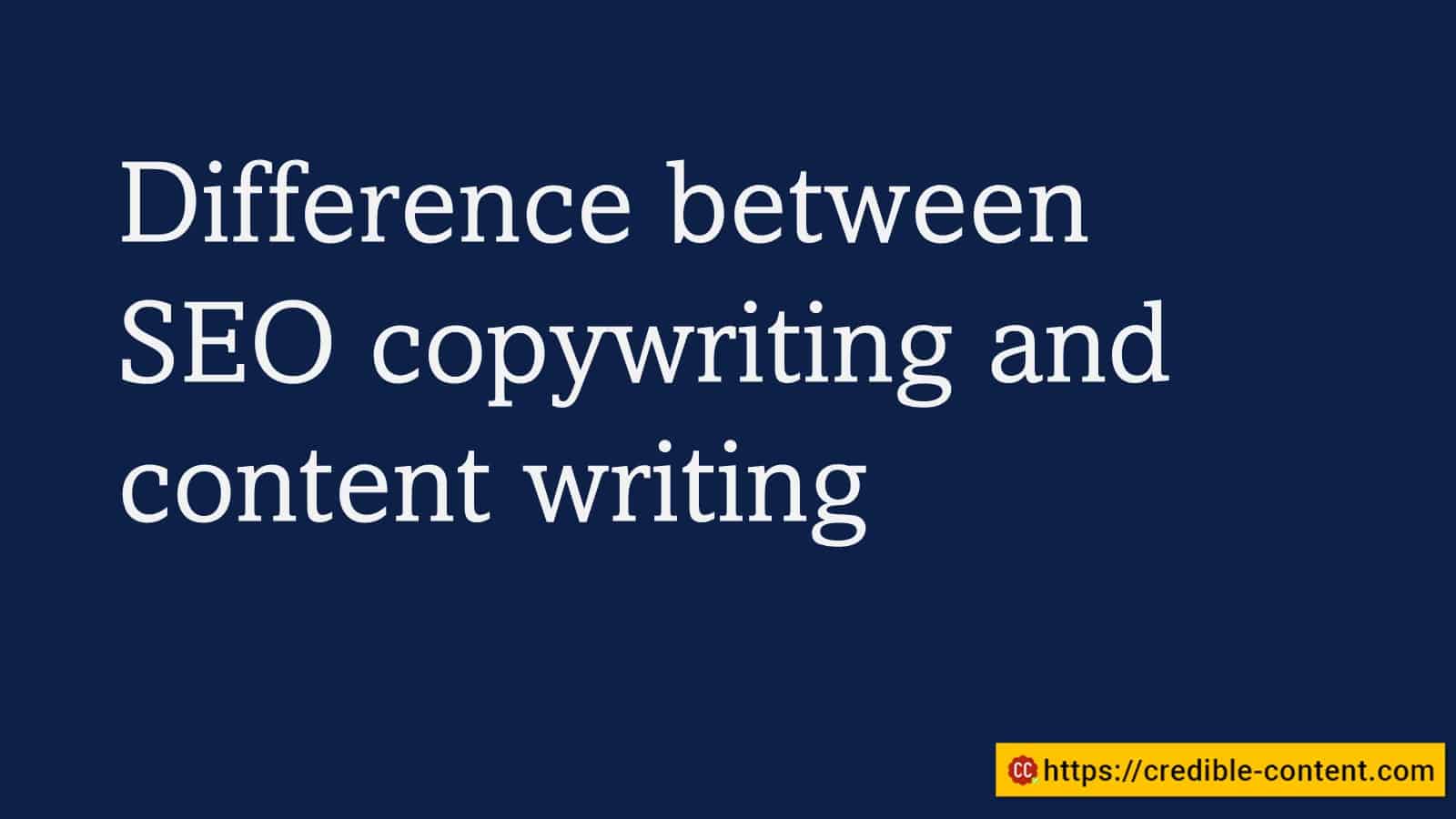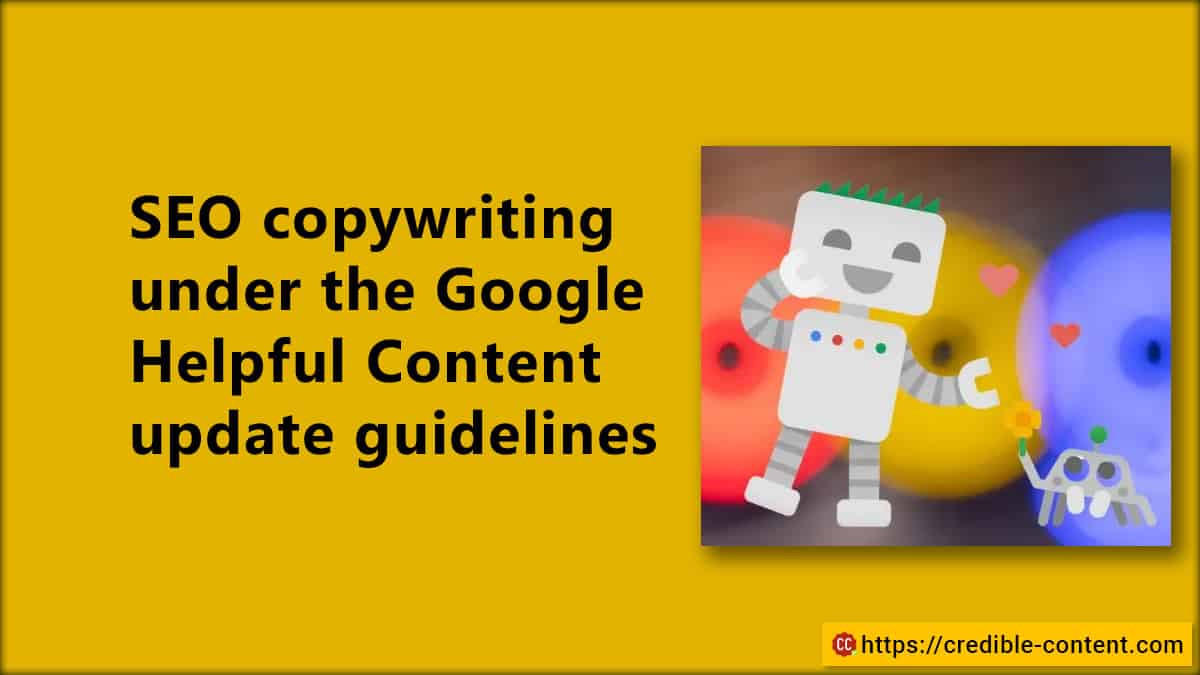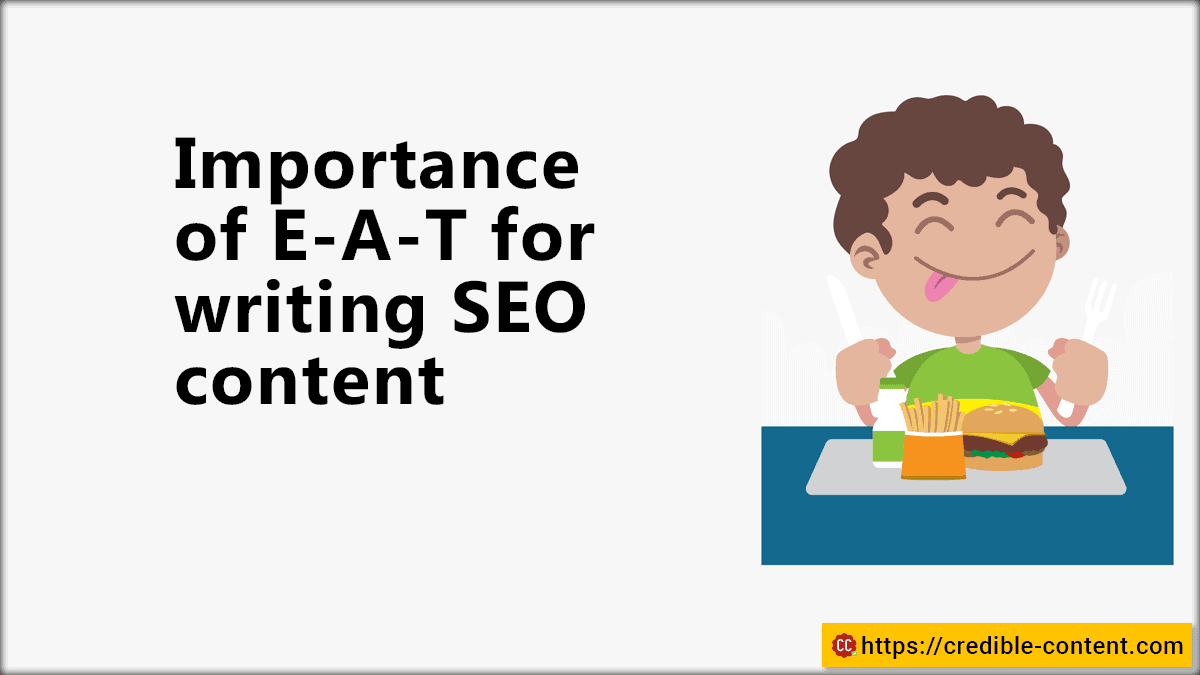I was going through a Reddit thread about whether a person should invest in SEO if he is spending good money on advertising on Facebook and other social media networks.
People also talk about how much time it takes for search engine rankings to improve.
SEO copywriting is the backbone of search engine optimization.
Search engine optimization does not exist without optimized content because if there is no content, if there is no copy, what do you optimize?
Three main components of SEO – as I understand the field – are:
- Writing and publishing optimized content.
- Optimizing source code so that search engine crawlers can crawl and index content without hurdles.
- Getting backlinks from authority websites, preferably with higher page rank.
- Interlinking existing content.
- Increasing the time people spend on the website.
Recently Google rolled out its “Helpful Content” algorithm update that penalizes websites that solely publish content meant to improve search engine rankings, without providing any value to human readers.
This is a good step on Google’s part because what is the purpose of publishing even optimized content if your content is not solve any purpose.
Therefore, SEO copywriting can help you only if it really helps your readers.
What is SEO copywriting?
I’m surprised that after all these years people still ask this question.
SEO copywriting in itself is nothing.
Every useful piece of copywriting is search engine optimized automatically.
As Google has suggested in its new algorithm guidelines, always write and publish human-friendly, human-first content.
And anyway, unless you are a high-authority website with hundreds of backlinks and a domain that is very old, even if you publish top-class content, it is difficult to get higher search engine rankings in just a couple of months.
So, if you hire me for my SEO copywriting services and then you expect that your rankings should improve within two months, you are daydreaming.
Even if I give you an example of my own website, although I’m writing this blog post on “SEO copywriting” there is a slim chance it will rank well because high authority websites such as Hubspot, Search Engine Journal, Backlinko, and Neil Patel (among many more) have already ranked well on the first and the second page.
Then why am I writing on this topic if I don’t hope to rank well for “SEO copywriting”?
It improves my content depth – and this is a reason why you should publish SEO content.
To gradually improve your content depth because as your content depth increases, so do your search engine rankings.
Now coming back to the question of “What is SEO copywriting?”
The simple explanation is that it is the art of writing informative content following the best SEO practices.
These practices include:
Crafting a headline that truly represents the body content.
Using the language used by the target audience.
Using short sentences to make it easier for humans to read and for search engine algorithms to process.
Strategically using keywords and search terms within the content so that they are an integral part of your narrative.
Satisfying the search intent – with what intent people are searching for your information?
How is SEO copywriting different from SEO content writing?
Content writing is mostly for blogs and other pieces of content that is meant to inform and educate.
You follow the same conventions when writing SEO content but a big difference is that in copywriting, you convince and convert people.
In copywriting, there is a CTA.
Content writing is used for blogging, case studies and other information articles.
Copywriting is used for the main website content, email marketing campaigns, landing pages and social media advertisements.
Hence, SEO copywriting means writing search engine friendly copy with the intention of making people perform the action represented by your CTA.
How long does SEO copywriting take before your search engine rankings improve?
Your search engine rankings don’t just depend on optimized content although, your content is the base of your entire SEO strategy.
SEO experts say that there are more than 200 factors that affect your search engine rankings, and your content or copy is just one of them.
Still, from the perspective of a content writer who has attained decent rankings for a few websites merely on the strength of SEO content, how long does it take?
I’m talking from the perspective of SEO copywriting and content writing.
I have experienced this with a couple of my own websites.
If you publish content – good SEO content – everyday, and preferably multiple times in a day, you can improve your rankings in 3-4 months.
It depends on the topics you choose.
It also depends on how well you can use your keywords and how competitive those keywords are.
You need to focus on longtail keywords because main and primary keywords are already covered by other websites.
For example, if I want to rank well for search terms like “content writing services” or “SEO copywriting services”, at least right now it is near to impossible.
Therefore, I try to focus on less competitive search terms.
For example, I rank well for “content writer for accounting businesses” or “content writer for coaching websites”.
In fact, even if you search for “SEO copywriter for accounting business” you will be able to find my website in top position.
Again, coming back to how much time it takes.
If you are aiming for rare keywords that very few people use, your website can start ranking well even within a couple of weeks if you manually submit your links to Google after publishing them.
But with fair amount of competition, give yourself 3-6 months.
3-6 months when you publish content everyday on your chosen keywords.
You will need to exercise patience.
Can you improve your rankings just on the strength of SEO copywriting without getting backlinks.
I have never actively sought backlinks.
My website has backlinks but that’s because many people have linked to my blog posts on their own.
Over the past 10 years, my website has accumulated some good backlinks.
Somewhere around in 2010 I actively wrote guest blog posts for some high traffic websites and from there I got a few backlinks.
After that, I never tried, and I solely focused on publishing content on my own website.
I use a mix of SEO copywriting and content writing to keep my content search engine friendly.
My rankings are not stellar but they are good enough to give me a steady flow of work.
I don’t remember how much time my content writing website took to create a search engine presence, but I have worked on two other websites.
For both of them, I was able to start getting search engine traffic within three months.
But I published lots of content, sometimes more than 5-6 posts per day, with 4 being minimum.
Those were highly focused blog posts and back in those days (5-10 years ago) Google was not very strict.
Since most of my blog posts linked to external content, they were just 300-400 words.
Despite that, I could get them rank on the first page.
Realistically, what suggestion would I give to someone starting from scratch?
How long does SEO copywriting take before the rankings improve?
Keep a budget for 4 months if you publish one web page or one blog post every day.
If you publish twice every day then 2-3 months.
It goes without saying that how well your SEO copywriting performs depends on the degree of competition you face, but then, whenever you are starting from scratch, it is always better to focus on less competitive search terms.

